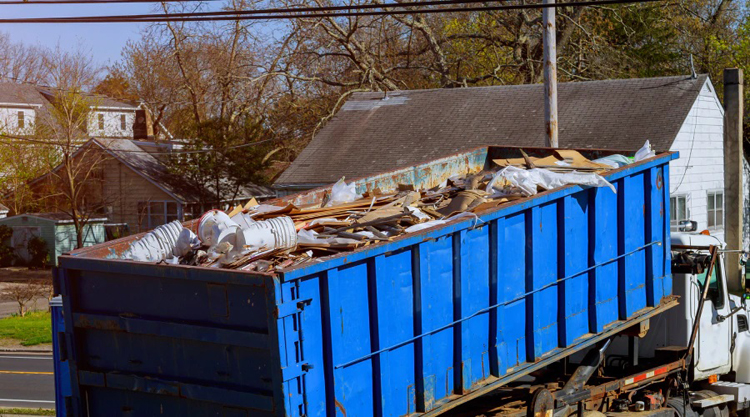Commercial Dumpster
In the bustling landscape of urban and industrial areas, the commercial dumpster stands as a silent sentinel, playing a crucial role in the often overlooked but essential realm of waste management.
The Historical Evolution of Commercial Dumpsters
The history of waste disposal dates back to ancient civilizations, where rudimentary methods like open dumping were prevalent. However, as urbanization progressed and population density increased, the need for more organized and efficient waste management became apparent. This led to the development of the first rudimentary dumpster-like structures in the early 20th century.

Design and Functionality
Commercial dumpsters come in various shapes and sizes, tailored to accommodate the diverse needs of different industries and businesses. The most common types include front-load dumpsters, rear-load dumpsters, and roll-off dumpsters.
Front-Load Dumpsters
Front-load dumpsters are commonly found behind restaurants, businesses, and other commercial establishments. They feature a slanted front that allows for easy loading and unloading of waste.
Specialized trucks with hydraulic arms that lift and empty the contents into the truck’s compactor are responsible for servicing these dumpsters.
Rear-Load Dumpsters
Rear-load dumpsters are prevalent in residential areas and smaller businesses. Unlike front-load dumpsters, they have lids on the top and are emptied from the rear using a lifting mechanism on the waste collection vehicle.
Roll-Off Dumpsters
Roll-off dumpsters are large, open-top containers with wheels that allow them to be easily rolled on and off specially designed trucks.
These dumpsters are ideal for construction sites, large-scale cleanups, and other projects that generate a significant volume of waste.
The durability of commercial dumpsters is a key design feature. Constructed from sturdy materials such as steel or heavy-duty plastic, they can withstand the rigors of frequent use and exposure to various weather conditions.
Environmental Impact
While commercial dumpsters play a pivotal role in waste management, their impact on the environment is a topic of increasing concern. In terms of disposal and recycling, the sheer volume of waste that businesses and industries produce presents a significant challenge.
One positive aspect is that modern dumpsters are often designed with recycling in mind. Many businesses now utilize separate containers for different types of waste, facilitating the recycling process. The introduction of recycling initiatives has helped mitigate the environmental impact of commercial waste to some extent.
However, challenges persist. Illegal dumping, inadequate recycling infrastructure, and the disposal of hazardous materials in commercial dumpsters remain issues that demand attention. Striking a balance between economic development and environmental sustainability is an ongoing challenge that requires collaborative efforts from businesses, communities, and policymakers.
The Economic Perspective
From an economic standpoint, commercial dumpsters contribute significantly to the waste management industry. Waste collection services, dumpster manufacturing, and related sectors provide jobs and contribute to the overall economic infrastructure. The efficiency of waste management directly affects the livability and attractiveness of urban and industrial areas, impacting property values and the overall business environment.
Additionally, the dumpster rental industry has seen substantial growth, catering to businesses and construction projects that require temporary waste disposal solutions. Without the need for a permanent on-site dumpster, businesses can effectively manage their waste thanks to the flexibility of dumpster rentals.
Challenges and Innovations
Commercial dumpsters have facilitated advances in waste management, but problems still exist. The overfilling of dumpsters, illegal dumping, and insufficient recycling efforts are common issues that municipalities and businesses grapple with. In response, there is a growing emphasis on innovation to address these challenges.
Smart Dumpster Technology
The integration of technology into dumpsters, known as smart dumpster technology, aims to provide real-time data on waste levels, allowing for more efficient collection routes and reducing the risk of overflow. Sensors and monitoring systems help optimize waste collection schedules and contribute to overall resource efficiency.
Waste-to-Energy Initiatives
Some innovative waste management initiatives involve converting commercial waste into energy through advanced technologies such as anaerobic digestion and waste incineration. These methods not only reduce the volume of waste but also contribute to sustainable energy production.
Community Engagement
Increasing awareness and promoting responsible waste disposal practices among businesses and communities are integral to addressing waste management challenges.
The commercial dumpster, as exemplified by Dumpster Guys Corpus Christi, stands as a testament to the indispensable role it plays in local waste management. Serving as the backbone of clean and organized communities, these dumpsters from Dumpster Guys contribute significantly to the economic infrastructure of Corpus Christi. As we reflect on the evolution of waste disposal and the advancements in dumpster technology, it becomes evident that Dumpster Guys Corpus Christi not only provides a service but also represents a commitment to environmental sustainability.
